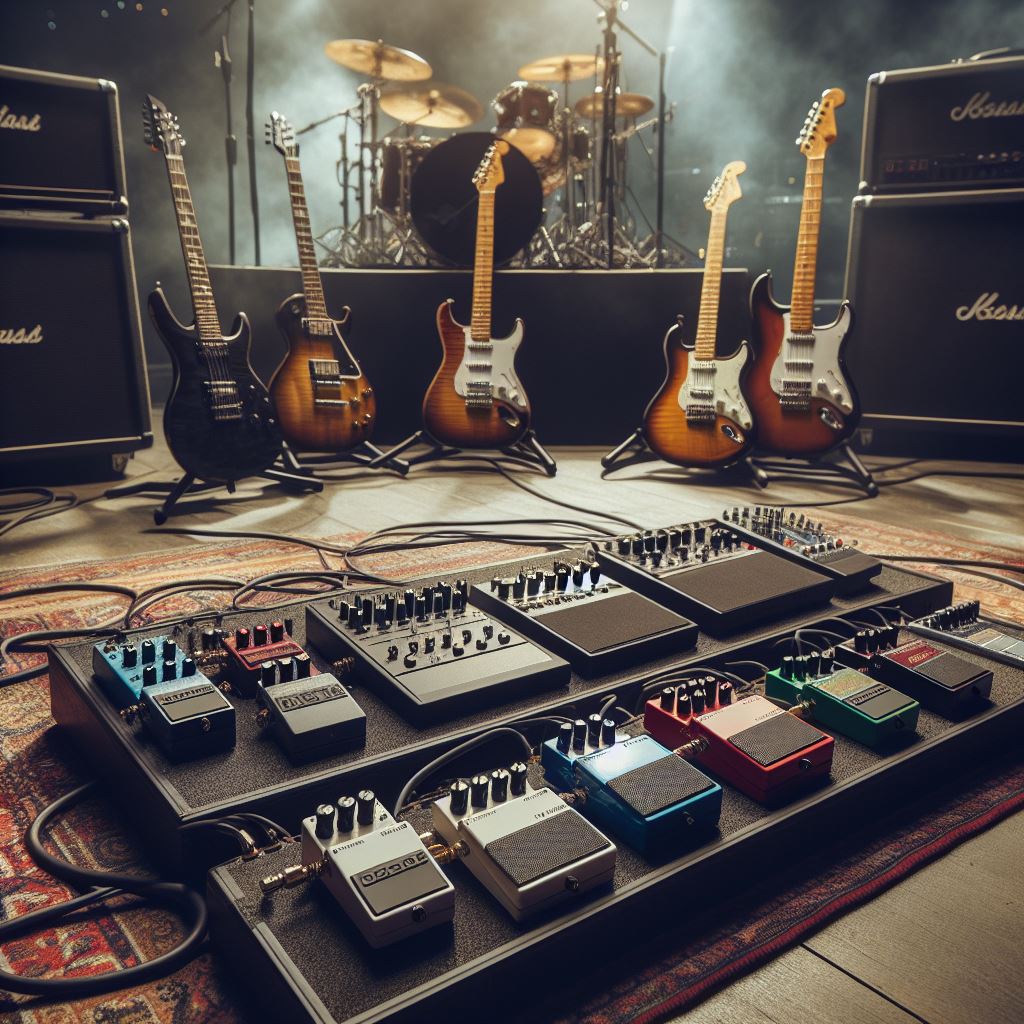When it comes to mastering the guitar, one of the most overlooked yet crucial components is the guitar strings. Whether you’re a beginner or a seasoned professional, choosing the right strings can significantly impact your playing experience and overall sound. The world of guitar strings is vast, with numerous options tailored for different playing styles and genres. From the material of the strings to their gauge, each aspect plays a role in shaping your tone and ease of play.
In this comprehensive guide, we will delve into the nuances of selecting the best guitar strings for your specific needs. Whether you prefer the bright, crisp sound of steel strings or the warm, mellow tones of nylon, understanding the characteristics of various strings will help you make an informed decision. We’ll cover everything from the basics of string anatomy to advanced tips for maintaining their longevity.
Ready to take your guitar playing to the next level? Subscribe To My YouTube Channel for more in-depth reviews, tutorials, and expert advice on all things guitar-related!
Let’s start by exploring the different types of guitar strings available and how they can enhance your playing style.
Factors to Consider When Choosing Strings
Choosing the best guitar strings for your instrument involves considering several key factors that can significantly influence your playing experience and sound. Here are some critical elements to keep in mind:
- Material: Guitar strings are typically made from steel, nickel, brass, or nylon. Steel strings are common for electric and acoustic guitars and provide a bright, sharp tone, while nylon strings are used for classical and flamenco guitars, offering a softer, warmer sound.
- Gauge: The thickness of the strings, or gauge, affects both the playability and tone. Lighter gauges (e.g., .009-.042) are easier to play and bend, making them ideal for beginners and lead guitarists. Heavier gauges (e.g., .011-.049) produce a fuller, richer tone, which is preferred by rhythm guitarists and those playing in lower tunings.
- Coating: Some strings come with a protective coating that extends their lifespan by preventing corrosion. Coated strings can feel smoother and last longer, but they may also be slightly more expensive and can sometimes alter the tone.
- Winding Method: The way the strings are wound affects their tone and feel. Roundwound strings are the most common, providing a bright, clear sound. Flatwound strings have a smoother surface and produce a mellower, darker tone, often favored by jazz and blues players.
- Tension: String tension is crucial for comfort and playability. Higher tension strings can offer more volume and sustain but require more finger strength, while lower tension strings are easier to press and bend but may lack some tonal depth.
Each of these factors contributes to the overall performance and sound of your guitar. Understanding these elements will help you select the strings that best suit your playing style and musical preferences. Next, we’ll dive into specific recommendations for different genres and playing techniques.
Best Guitar Strings for Beginners

For those just starting their guitar journey, selecting the best guitar strings can significantly impact their learning experience and overall enjoyment. Here are some top considerations and recommendations for beginner guitarists:
- Light Gauge Strings: Beginners often benefit from using light gauge strings (e.g., .009-.042 for electric guitars and .010-.047 for acoustic guitars). These strings are easier to press down and bend, making it less painful for the fingers and more comfortable for extended practice sessions.
- Nickel-Plated Steel: For electric guitars, nickel-plated steel strings are a popular choice due to their balanced tone and durability. They provide a good mix of brightness and warmth, which is ideal for various music styles beginners might explore.
- Phosphor Bronze: Acoustic guitar beginners may find phosphor bronze strings particularly beneficial. These strings are known for their long-lasting and warm, rich tone, making them a favorite among many guitarists.
- Coated Strings: While slightly more expensive, coated strings are an excellent option for beginners. The coating helps prevent rust and corrosion, extending the lifespan of the strings and reducing the need for frequent replacements.
- Nylon Strings: For those starting with classical or flamenco guitars, nylon strings are the standard choice. They are softer on the fingers compared to steel strings and produce a mellow, warm tone suitable for these genres.
Ultimately, the best strings for beginners should promote ease of playability and minimize discomfort, allowing new guitarists to focus on developing their skills and enjoying the learning process. Experimenting with different brands and types can also help beginners find the perfect fit for their unique needs and preferences.
Best Guitar Strings for Acoustic Guitars

Choosing the best guitar strings for acoustic guitars is essential to achieving the desired sound and playability. Here are some key factors and top picks for acoustic guitar strings:
- Phosphor Bronze Strings: One of the most popular choices, phosphor bronze strings offer a warm, rich tone with excellent clarity and resonance. They are versatile and suitable for various genres, making them a reliable option for many acoustic guitarists.
- 80/20 Bronze Strings: These strings, made from 80% copper and 20% zinc, provide a bright, crisp sound with strong bass response. They are particularly favored by players who want a lively, projecting tone, making them ideal for live performances and recording.
- Silk and Steel Strings: For those seeking a softer, mellower tone, silk and steel strings are an excellent choice. These strings combine steel with silk filaments, resulting in a smooth, less metallic sound. They are also gentler on the fingers, making them popular among fingerstyle players.
- Coated Strings: Coated strings feature a protective layer that extends their lifespan by resisting corrosion and wear. While they may slightly reduce the brightness of the tone, their durability and reduced maintenance make them a preferred option for many acoustic guitarists.
- Custom Light Strings: For players who prioritize ease of playability, custom light strings offer a balanced compromise between light and medium gauges. They provide a comfortable playing experience without sacrificing too much volume or tone quality.
Ultimately, the best acoustic guitar strings depend on the player’s style, preference, and the specific sound they aim to achieve. Experimenting with different materials, gauges, and brands can help guitarists find the perfect match for their instrument and playing technique.
Best Guitar Strings for Electric Guitars

When it comes to choosing the best guitar strings for electric guitars, the right set can significantly impact your tone, playability, and overall performance. Here are some top options and considerations for electric guitar strings:
- Nickel-Plated Steel Strings: These strings are the go-to for many electric guitarists due to their balanced tone and versatility. Nickel-plated steel strings offer a bright, clear sound with good sustain and are suitable for a wide range of genres, from rock to blues to jazz.
- Pure Nickel Strings: For a warmer, vintage tone, pure nickel strings are an excellent choice. They provide a smooth, mellow sound that is reminiscent of the classic rock and roll era. These strings are perfect for players seeking a more retro vibe.
- Stainless Steel Strings: Known for their durability and resistance to corrosion, stainless steel strings deliver a bright, cutting tone with excellent sustain. They are ideal for players who need strings that can withstand aggressive playing and frequent bends.
- Coated Strings: Like their acoustic counterparts, coated electric strings feature a protective layer that prolongs their life by resisting dirt and sweat. While they may slightly dampen the brightness of the strings, their extended lifespan and consistent performance make them a popular choice.
- Hybrid Gauge Strings: For guitarists who want the best of both worlds, hybrid gauge strings combine lighter top strings for easy bending with heavier bottom strings for powerful rhythm playing. This configuration is great for players who switch between lead and rhythm parts frequently.
The best electric guitar strings ultimately depend on your playing style, genre, and personal preference. Whether you’re looking for bright, cutting tones or warm, vintage sounds, experimenting with different types and brands can help you discover the perfect strings to enhance your playing experience.
Maintaining Your Guitar Strings

Proper maintenance of your guitar strings is essential to ensure their longevity and to keep your instrument sounding its best. Here are some tips on how to maintain your guitar strings effectively:
- Regular Cleaning: After each playing session, wipe down your strings with a clean, dry cloth. This helps remove sweat, oils, and dirt that can accumulate and cause corrosion. For a deeper clean, use a string cleaner solution or rubbing alcohol on a cloth.
- Proper Storage: When not in use, store your guitar in a case to protect it from dust, moisture, and temperature fluctuations. Avoid leaving your guitar in direct sunlight or in places with high humidity, as these conditions can damage both the strings and the instrument.
- String Lubricants: Applying a string lubricant can reduce friction, making your strings last longer and enhancing playability. Be sure to use products specifically designed for guitar strings to avoid any potential damage.
- Regular String Changes: Even with proper maintenance, strings will eventually wear out. Depending on how often you play, changing your strings every 1-3 months is a good rule of thumb. Fresh strings not only sound better but also feel better under your fingers.
- Tuning Stability: Keeping your guitar properly tuned and avoiding excessive tuning changes can help prolong string life. When tuning, do so gently to avoid putting unnecessary stress on the strings.
By following these maintenance tips, you can maximize the lifespan of your guitar strings and ensure your instrument consistently delivers its best performance. Remember, well-maintained strings contribute significantly to the overall sound quality and playability of your guitar.
For more tips and reviews on guitar gear, don’t forget to subscribe to my YouTube channel!

